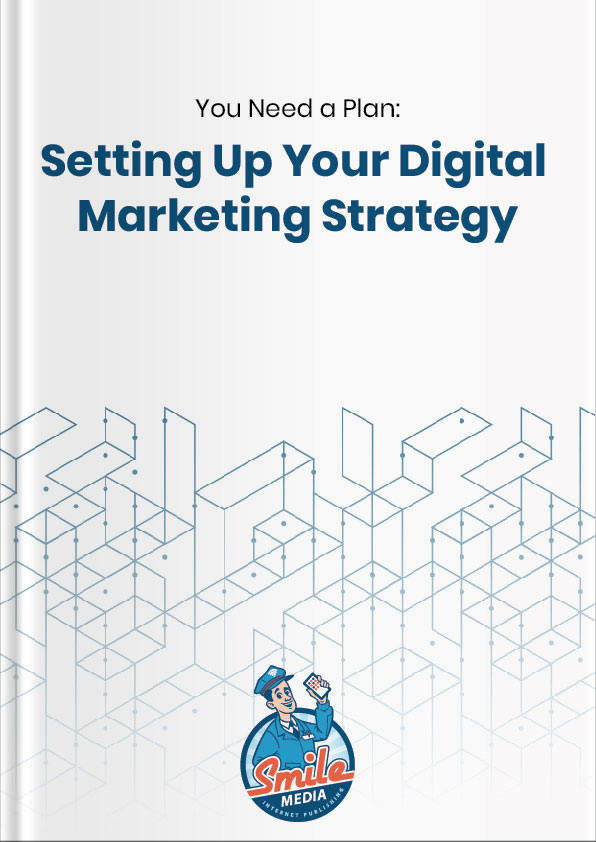Whether your organization is just starting out, or you’ve been in business for a while, there are many reasons why your website might not be ranking as high as it could be. Here are some common issues that may be affecting your rank position, and some tips to help you get your website ranking on the 1st page of Google.
1. The Issue: Your content isn’t long or thorough enough.
If your site doesn’t have enough content, and/or it’s not detailed enough to answer the questions its searchers are looking for, you won’t rank well. Regardless of what type of content you’re writing or where it will live on your site, the quantity of words continues to be a crucial ranking factor for your site. According to recent Search Engine Journal article, “Content in the top positions exceed[s] 1000 words on average.”
It’s also important to remember that relevance and details are equally as important. You don’t want to simply create more content just for the sake of having more words on a page. The key indicators to look for with regards to content issues are click-through rate, time on site, and bounce rate.
Time on site and bounce rate are the most important indicators of whether your content is meeting the needs of your target audience. A long time on site likely means your visitors found what they were looking for. Alternatively, a high bounce often means that visitors didn’t find the answers they were looking for, or the answers weren’t detailed enough.
The Solution:
Think about all the questions your audience may have with regards to the products/services you offer and find simple and clear ways to explain the answers on your site. What may seem obvious to you may not be as clear to someone who has just started to research your industry or the products/services you provide.
Therefore, it’s best to explain things as thoroughly as possible. Let the reader choose whether to skip certain topics or details. Your job is simply to provide the best possible content resources for your potential customers, so they don’t have to go anywhere else to find additional information.
2. The Issue: Duplicate content.
Unfortunately, duplicate content is something that often occurs by mistake, but can significantly affect your search rankings when it does. This may happen for a number of reasons. This often occurs as a result of URL tracking codes that are placed on pages for data analytics purposes, as the original URL still remains, in addition to the tracking URL. Some sites also create a separate URL for a printer-friendly version of a web page, or session ID URLS, both of which create multiple versions of the same page.
In other cases, there may be pages of your site that have similar content due to the products and services being offered. For example, you may sell indoor and outdoor sports equipment. In each case, you would likely have a page for indoor sports equipment and a separate page for outdoor sports equipment, and the content might be almost exactly the same.
The Solution:
If you’re not sure whether your site contains duplicate content issues, you can check using the Copyscape tool. This will allow you to find any problem URLs, so they can be fixed. Luckily, there are ways to fix this using HTML codes that direct search engines accordingly.
Once you’ve identified the duplicate pages, you have a variety of options depending on what is causing the issue and how you want to resolve it. You can set up 301 redirect codes to direct search engines back to the original page. That way, your pages aren’t competing with each other, and the search engines don’t have to try to figure out where the original content is. An alternative to the 301 redirect is the rel=canonical tag, which simply goes into the HTML head meta data of your website.
Additionally, you can signal to search engines that certain pages shouldn’t be indexed by using “noindex, follow” tags to identify these pages. If the issue is a result of similar pages that live purposefully on your website, you could try combining the information into one page to eliminate the existence of duplicate content.
3. The Issue: Technical Errors
If your website has several technical errors, such as HTML errors, broken links, missing image alt tags etc., this will negatively impact your search rankings. It’s important that your site’s HTML be as functional and informative as possible. If you visitors are arriving on pages with broken links, or are unable to view images, they are likely to go elsewhere to find the information they are looking for. Similarly, search engines will rank sites with broken links, missing image alt tags and other HTML errors much lower in the results.
The Solution:
To confirm whether your site’s HTML is programmed properly, and/or to check for broken links and other coding errors, you can use one of the following sites to check: validator.w3.org, brokenlinkcheck.com, and feedthebot.com/tools/alt/. From there, you can make all necessary changes to ensure that your website is functioning at its highest performance level. If HTML isn’t your thing, you may want to hire a professional developer or website design agency to help. Learn more about choosing the right web design agency for you.
4. The Issue: Few Authoritative Links Pointing to Your Site.
This one’s a little less obvious, and a bit more work is involved in correcting the issue. Search engines are focused on providing the most relevant results to searchers, so the more important your site appears to be to an authoritative site, the more important you become in the search rankings. Educational sites, government sites, news sites, and popular brand sites, for example, are all examples of authoritative sites that you want linking to yours. It takes time, however, to form a trusted relationship with these types of organizations.
The Solution:
You can check out who is currently linking to your site using ahrefs.com, and then get to work on increasing your authoritative links. If you offer services which can be listed in a relevant directory on an authoritative site, this is one way to get authoritative links to your site. Guest blogging is another effective way to get your website mentioned and linked to an authoritative site. Publishing articles in industry publications is another.
Attracting the attention of authoritative websites and their content curators means you’ll have to create some incredible content yourself. If writing isn’t your thing, then you’ll need to a hire a professional writer or copywriting agency to help you.
5. The Issue: Slow Loading Times.
According to Search Engine Journal, “Pages in the top 10 positions have a loading time of 7–8 seconds, on average.” If your website takes forever to load, you are going lose a lot of potential customers. Plus, your website will get pushed lower in the ranking results. No one wants to wait forever to navigate through a website, including the search engine bots.
The Solution:
Check out your site’s loading time at gtmetrix.com. The free tool analyzes your site speed, and indicates specific issues with regards to browser caching, URL issues, image optimization, and a variety of additional factors which affect your site loading time. You can then work with a website developer to fix as many issues as possible to get your site loading at an acceptable speed.
6. BONUS Issue: Your Website Isn’t Mobile Friendly.
Google bots just recently started experimenting with indexing for mobile first. While your site will still be indexed whether it is designed for desktop or mobile viewers, mobile design wins. Even before this new development, mobile-friendly sites have been ranking higher ever since Mobilegeddon in 2015. Mobile searchers are growing at a significant rate, and the search engines seek to deliver relevant results accordingly.
The Solution:
If your website isn’t mobile friendly at this stage of the game, you’re way behind and need to get this issue fixed as soon as possible. It’ll only get worse from here on out.
Not Ranking Well?
If your site is consistently showing up at the bottom of the list, it may be time to take a closer look at how well your website is serving its intended audience. The better you can serve your website visitors, the higher you’ll rank in the search results. It’s (almost) that simple.








